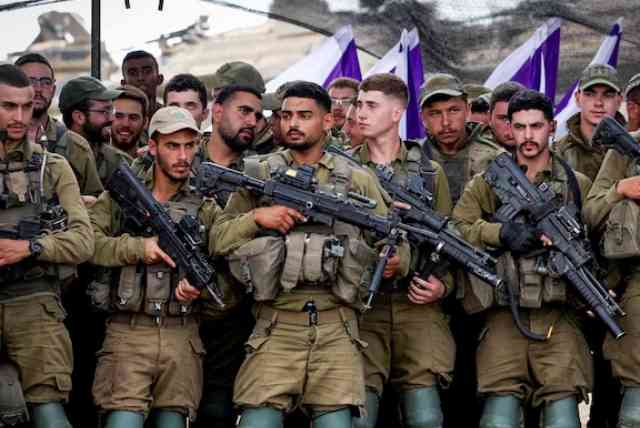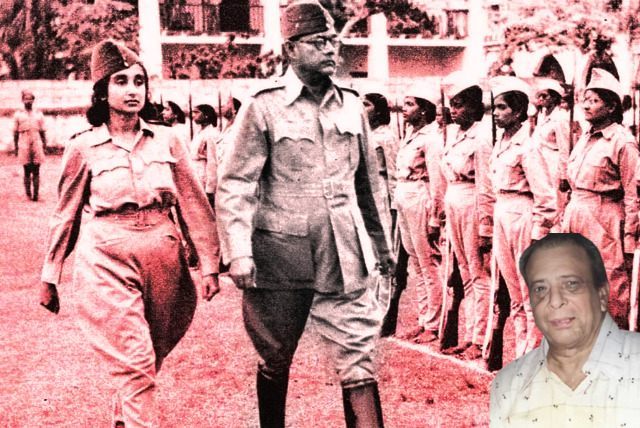
Terrorism, Religion & Sinister Social Media Solutions
Imagine being in a meadow whose beauty is a thing of poetry – bloodied in seconds, changing the landscape of joy into that of brutality, and unspeakable cruelty. Some 26 men on vacation, dead.
The irony? The people who were part of the rescue belonged to the same community as that of the perpetrators – Muslim.
As expected in times of grief, the human tendency of looking for a culprit quickly. And, as expected it led influencers on social media and hurt citizens to demonize an entire community. Isn’t it understandable that the country, currently seething over the loss of its majorly Hindu brethren in Pahalgam, is up in arms against an invisible force that seems to follow a particular religion?
Instagram is brimming with posts that read, “Terrorism has a religion.” And, boy, does it not!
The perpetrators are Muslims, and they hate Hindus, and now we hate them back with a vengeance. This is what entire generations of the nation have grown listening to, internalising, normalising. Whether or not the perpetrators follow Islam, or the victims Hinduism is a different topic.
But, what is more surprising is that no one is talking about the tall post-demonetisation, post-370 Abrogation claims of the ruling party that terrorism in the Valley has now been dealt with.
Jammu Kashmir is still a sensitive zone, its residents not better treated post abrogation of Article 370. Did we actually believe, suppressing a state, a community won’t lead to the pressure cooker exploding? That just the abrogation was enough to reduce deployment of security forces, with no permanent solution?
In a debate with Arnab Goswami, General Gagandeep Bakshi highlighted the concerns surrounding the three-year moratorium on Army recruitment and the reduction of personnel by more than 1,00,000. India’s defence budget as a share of the GDP has been declining too, almost halving in the last decade.
But, if so much security is needed in Kashmir, isn’t Islam problematic?
First, to conflate Kashmiris with Muslims and terrorism is an oversimplification of the socio-political climate in the state.
Terrorists have a lot of tools at their disposal: propaganda, manipulation, force, and blackmail. And, Kashmiris are the biggest victims of these acts of terror. They face a three-pronged attack: by the general sentiment of hatred against them, by the terrorists on their lives, and lastly, the attack on their livelihood that follows from this isolation.
Besides, calling Islam a face of terrorism is not just factually incorrect but also dangerous. To begin with, by that logic, it might not be the only face of terrorism. In 2013, TIME Magazine called Wirathu, a Buddhist monk, the Burmese Bin Laden. But, you would be wrong to think he was the only one involved.
A report from Human Rights Watch highlights the role played by the Burmese local authorities and Buddhist monks in forcibly displacing over hundreds of thousands of Rohingyas in the region.
In fact, in recent years, the State Peace and Development Council (SPDC), which ruled Burma (now Myanmar) from 1988 to 2011, actively pushed for the conversion of ethnic minorities, often through coercive methods, as part of its assimilation efforts. The regime promoted Burmese Buddhist nationalism as both a cultural and political ideology to justify its controversial rule, attempting to merge Buddhism with its totalitarian beliefs.
To add to it, it’s not just Myanmar that showcases a link between Buddhism, and terrorism. Thailand and Sri Lanka are also affected by Buddhist aggression.
In the Middle East, we see Jews taking advantage of the hospitality shown by Palestinians, eventually taking up more than 80% of Palestinian land since 1998.
During World War I, Britain entered into agreements to secure the backing of different factions in the Middle East leading to the 1917 Balfour Declaration, which led to the “establishment in Palestine of a national home for the Jewish people”. The mandate led to Jewish immigration from Europe to Palestine between the 1910s and the 1940s, which resulted in the Jewish population reaching 33 percent by 1947. On May 14, 1948, the British Mandate ended, and Zionist leaders declared a state, starting the first Arab-Israeli war. About 750,000 Palestinians were expelled, and Zionists captured 78 percent of the land, leaving 22 percent, which was divided into the West Bank and Gaza Strip.
In 2024, we have land grabs in the name of settlers added to the Israeli government’s annexation registry.
Now, if we take a look at the United States of America, its gun violence statistics, racism, and recent news regarding migrants, we can safely say, there is a certain kind of violence that is rampant in the Christian community too. Remember, several decades back, Christians from the land of the sophisticated, the United Kingdom, inflicted the Jallianwala bagh tragedy, and left the poorest in India to die of starvation? Wasn’t this brutal colonialism just another form of terrorism?
ALSO READ: Lynch Militia And Communal Fault Lines
In recent years, people from Hindu commnity have taken a certain interest in lynching, hate speech, and calls to genocide within and outside their community. Cases in point are the Manipur conflict, the Karnataka-Maharashtra linguistic showdown, and attacks on churches & mosques during Hindu festivals.
One might go on and on and talk a little bit about a few other religions. But, I think, the point is made. No religion teaches violence, yet fanatics across the spectrum find reasons for aggressive conduct. So, there is indeed a correlation between religion and terrorism.
But what happens when you find people like Waheed – the first responder after the Pahalgam carnage, or Syed Adil Shah – the man who sacrificed his life trying to protect the tourists from terrorists? Those Lucknowees who open their hearts to you in Ameenabad? The Hindus who open their homes for Muslims during riots? The Sikhs who feed the Kashmiri Muslims when everyone else closes their doors? Makes the Insta correlation between religion and terrorism a bit imperfect, doesn’t it?
While we have all learnt to hate, and learnt to hate well, it might be a good time to note that in times of communalism, it’s you and me who suffer and not those who fuel it from the top. So, while some of us question their allegiance of every Kashmiri, putting a question mark on their dignity, remember we are making them apologise consistently for crimes they didn’t commit. Going by statistics, it’s clear that Muslims in Kashmir have suffered more from terrorism than Hindus. And, one life is not dearer or cheaper than another.
This is not to say that the terrorists might not have local help, but a blanket hatred towards Kashmiris will only alienate a community that has already felt orphaned since Independence.
Alienating Kashmiris and Kashmir, a state we claim is not occupied but integral to the nation, would mean playing into the hands of those who seek to divide us – neither good for Hindus nor for Muslims.



